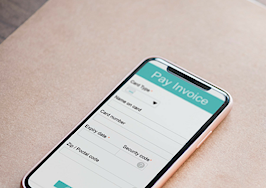We’ve all had those showings where the timing (or the seller) just wasn’t quite right. You know, the ones where you walk in with hopeful buyers and walk out less then 10 minutes later with an air of disappointment surrounding you.
Whether it’s a bad day, an out-of-control situation or pure blindness, showing nightmares happen.
Maybe the sellers simply weren’t able to get prepared due to forces outside of their control. Maybe their pet had an accident, and no one was home to clean it.
Perhaps the owners were simply clueless and had no idea how the home would show to an outsider. They’re blind to the mess, clutter, dirt and lack of home maintenance that a potential homebuyer would spot in an instant.
Or maybe the house just isn’t the right fit for the buyers due to layout, lot, location or lack of light. Whatever the reason, your buyers just weren’t feeling it.
And you, as the buyer’s agent, know that you might be asked to provide feedback to the listing agent. What’s the best way to convey meaningful feedback in a constructive manner? Here are six tips for providing valuable listing feedback — even when it’s bad.
1. Be honest
Is brutal honesty is the best policy? Yes, but be careful how you phrase things. Remember, in this age of automation, most showing feedback programs are set up on autopilot with responses going to both the listing agent and the seller at the same time.
Some agents choose to filter the feedback through them first, but you cannot assume that is the case on all feedback you are providing, so choose your words carefully.
Instead of saying “not show ready … home was a disaster, and nothing was picked up, piles of laundry everywhere … horrible!”
Perhaps phrase it with some positive attributes such as, “the home appeared to have a nice layout and lot, etc. My customer did like the neighborhood. Unfortunately, things in the home did not appear to be in order when we went through. I know it can be difficult getting a home ready for showings. Perhaps we can arrange another time to see it with some advance notice and give this home another chance.”
2. Get specific
It can often be a guessing game trying to make sense of what the real reasons why the buyer is (or is not) interested in the home. Instead of being vague and saying things like “nice house, but the buyer did not care for it,” articulate the specific reasons, such as “although the home was very appealing, the buyers felt the secondary bedrooms were going to be too small for their children.”
Or, “buyers did not like the flow of the floorplan — they felt there was too much distance from the garage to the kitchen when carrying groceries.”
Alternatively, maybe the home was great, but the buyers did not like the neighborhood. Explain why they liked another one better. For example, “It’s located in closer proximity to work, school, etc.”
3. Give suggestions and recommendations
Instead of armchair critcism, provide specific action items that would help improve the home’s marketability. For example, if there is too much furniture, do not say “the home appears cluttered and difficult to walk through.” Communicate that the seller should consider editing the space and removing a few items to make the home easier to navigate and show better.
If the home had a smell issue, rather than saying, “the home had a terrible smell,” consider saying, “there is a strong pet odor — may want to investigate the cause and have appropriate areas professionally cleaned to eradicate the smell.”
If the home was dated, instead of saying “needs too much work,” consider something like “the kitchen, baths and flooring are in need of updating to bring the home up to the level of comparable new construction options in this price range.”
Or, “My buyer felt there was going to be too much work and cost involved when comparing the home to other properties available for sale. You may want to consider obtaining estimates for updates needed and consider a price adjustment with the seller.”
4. Offer pricing feedback
I have rarely showed a listing where it seemed “well-priced.” Most agents do not want to document this in feedback in case their customer makes an offer or in the event that too much feedback on the home being “well-priced” may result in the seller thinking they are underpriced and should increase their asking price.
Furthermore, should the agent’s customer make an offer, the listing agent could use the agent’s feedback of thinking the home was well-priced against the buyer. “You indicated on the showing feedback that you thought the home was well-priced, why the low offer?”
If you have a seller who is meticulously tracking every showing and feedback response, and it now matches up to your feedback with your name as the agent on the offer, this could make negotiating a fair price for the buyer a difficult proposition.
Although showing feedback is by no means binding as it relates to an offer, it could create an expectation for the seller that the market is not willing to deliver.
Feedback on pricing is highly subjective and really depends on the agent’s skill, experience and knowledge of the area and/or neighborhood that they are showing property in. If you are in a neighborhood that you aren’t that familiar with or haven’t researched market data ahead of time, then everything may seem overpriced to you, no matter what.
If you aren’t familiar with some basic statistics such as the percentage of asking prices homes are selling for, the absorption rate, average days on market, etc., you could be doing a huge disservice to the buyer by letting unfounded opinion reign supreme.
If you truly feel the property is priced too high, instead of saying “way overpriced” or “out of line with neighborhood,” which is often a common knee-jerk reaction, give specific information.
“Neighborhood comparables recently sold between X and Y within the past three months, and even with adjustments, the most I come up with is around $_______. Customer likes the home but is concerned about the asking price relative to actual sold prices as well as the prices of other comparable homes. Could you provide some insight on how you arrived at your asking price, etc.”
5. Consider the time frame
It is always helpful to know what the buyer’s timeframe for purchasing is. Although every buyer may not have a specific deadline by which to find a home, and some may just be starting the process, sellers are curious as are listing agents.
Just be honest — if the buyer is on a perpetual search for the “right” home, let the listing agent know. If they have no particular time frame in mind, communicate that as well.
And if you choose the home as part of an area tour for a buyer who could possibly be relocating to the area, please tell the listing agent instead of saying buyer is relocating to the area. That is only going to make the listing agent probe further with more questions.
6. Let the listing agent know what your buyers choose
If the buyer made a decision, let the listing agent know rather than providing vague feedback and keeping the listing agent guessing. This will help them in assessing the trends of what buyers looked at and actually ended up buying.
Although agents have a good idea of what the competition is, what they thought may be the home’s immediate competition may not end up being the case. It’s also helpful to provide feedback that indicates why the particular property was chosen; was it price, condition, location, more upgrades, less work, etc.?
Instead of dreading or dodging showing feedback as “one more thing you need to do on an already overloaded to-do list,” consider this as an opportunity to help impact the showing inventory in your market show better, price better and ultimately sell.
Although listing agents can be upfront with their sellers regarding issues that will impact their sale, there is nothing more powerful than feedback from third parties as to how the market truly sees their property.
Cara Ameer is a broker associate and Realtor with Coldwell Banker Vanguard Realty in Ponte Vedra Beach, Florida. You can follow her on Facebook or Twitter.













